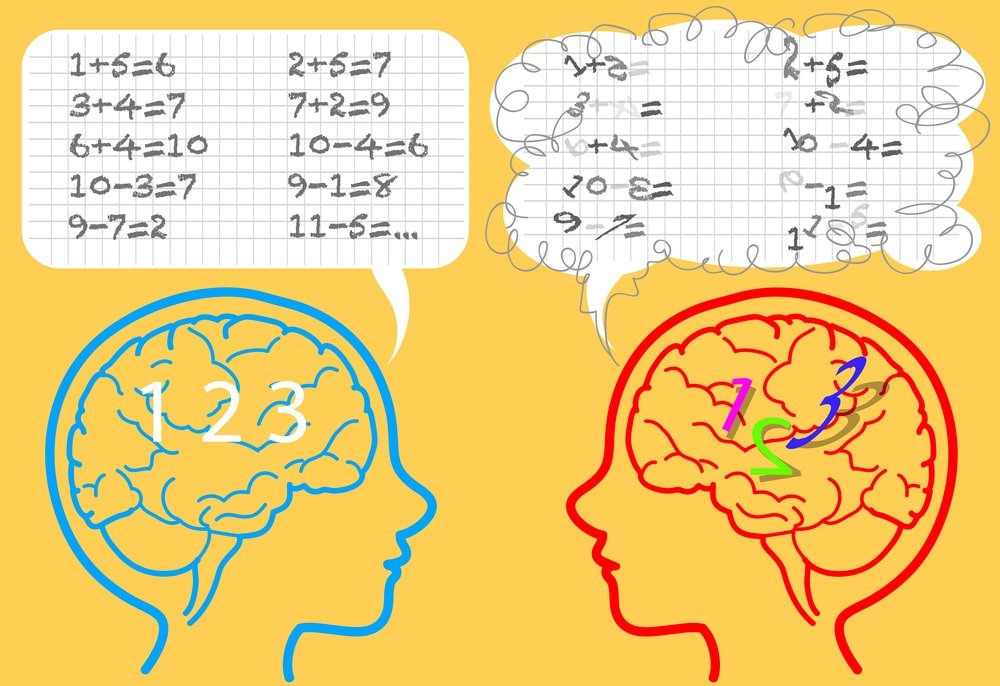
Dyslexia
Dyslexia is a neurological disorder in which a person has difficulty in learning numbers and letters. People can’t spell and write numbers. Dyslexia mainly occurs in children. It mainly occurs in people with attention deficit disorder. Dyslexia more commonly occurs in males as compared to females.
In some cases, people with dyslexia are intelligent and hardworking but their brain doesn’t process well and makes difficulties in understanding, learning, or writing.
Classification of dyslexia :
Dyslexia is classified into developmental and acquired forms.
â— Developmental dyslexia: developmental dyslexia begins in childhood.
â— Acquired dyslexia: it mainly occurs after brain injury or stroke.
Causes of dyslexia:
â— Dyslexia usually occurs due to abnormality in the processing of the left side of the brain.
â— Dyslexia can occur at a late age due to stroke and brain injury.
â— Genes play a very important role in this. People with a family history of dyslexia have maximum chances to suffer from dyslexia.
â— Some people with dyslexia have difficulty seeing letters that mainly occurs due to abnormal development of visual nerve cells.
â— Many people with auditory processing disorders always suffer from dyslexia due to impairment of auditory memory and sequencing.
â— Patients with short-term memory or developmental coordination disorder can cause dyslexia.
Symptoms :
Delayed speech can be one of the symptoms of dyslexia.
Children with dyslexia have problems in writing and
pronouncing letters.
Poor spellers.
In children, they cannot read aloud and have difficulty
pronouncing words or letters. Difficulty in memorizing
stories.
Can not answer the questions.
Difficulty in hearing.
Very slow performer, can not complete his/her task on
time.
Poor performance in math.
Lack of concentration.
Types of dyslexia :
1. Phonological dyslexia: dysphonetic or auditory dyslexia is the other name for phonological dyslexia. People with dyslexia are unable to pronounce a word or letter. Difficulty in reading or learning.
Surface dyslexia: also known as visual dyslexia. There is difficulty in seeing words and pronouncing them. Difficulty in learning and memorizing them. A person can not remember the word what it looks like.
Rapid naming deficit: People with dyslexia are not able to recognize words. They take time to answer. A person can not remember the words he has read before.
Double deficit dyslexia: In the double deficit dyslexia. A person is having difficulty in rapid naming of words as well as difficulty in pronouncing the words or letters.
Math dyslexia: In this, a person is having difficulty in learning and solving math equations also called dyscalculia and it is not a form of dyslexia.
Directional dyslexia: In this type people have problems in telling directions. They get confused on the right or left.
Risk factors:
â— People with a family history of dyslexia are prone to get dyslexia.
â— Smoking and alcohol consumption during pregnancy.
â— Brain injury.
â— stroke.
Diagnosis:
In early childhood, it is difficult to identify the signs and symptoms.
Neurological tests like hearing, vision, and brain function can be done to determine the cause of the disease.
Homeopathy treatment:
lycopodium: Lycopodium is well indicated for dyslexia where a child has learning and writing problems and having weak memory. A person is very introverted and spells wrong. Stammering of the last word. Difficulty in learning the language.
Baryta carb: baryta carb is given when a child is having low confidence with the confusion of the mind.
Kali Phos: kali phos can be given in lower concentration with solving mathematical equations. Forgetfulness with loss of memory. The mind is very dull.
Sambulum: pabulum works best in dyslexia with poor math skills. A person generally makes mistakes while writing and making calculations, while adding numbers.